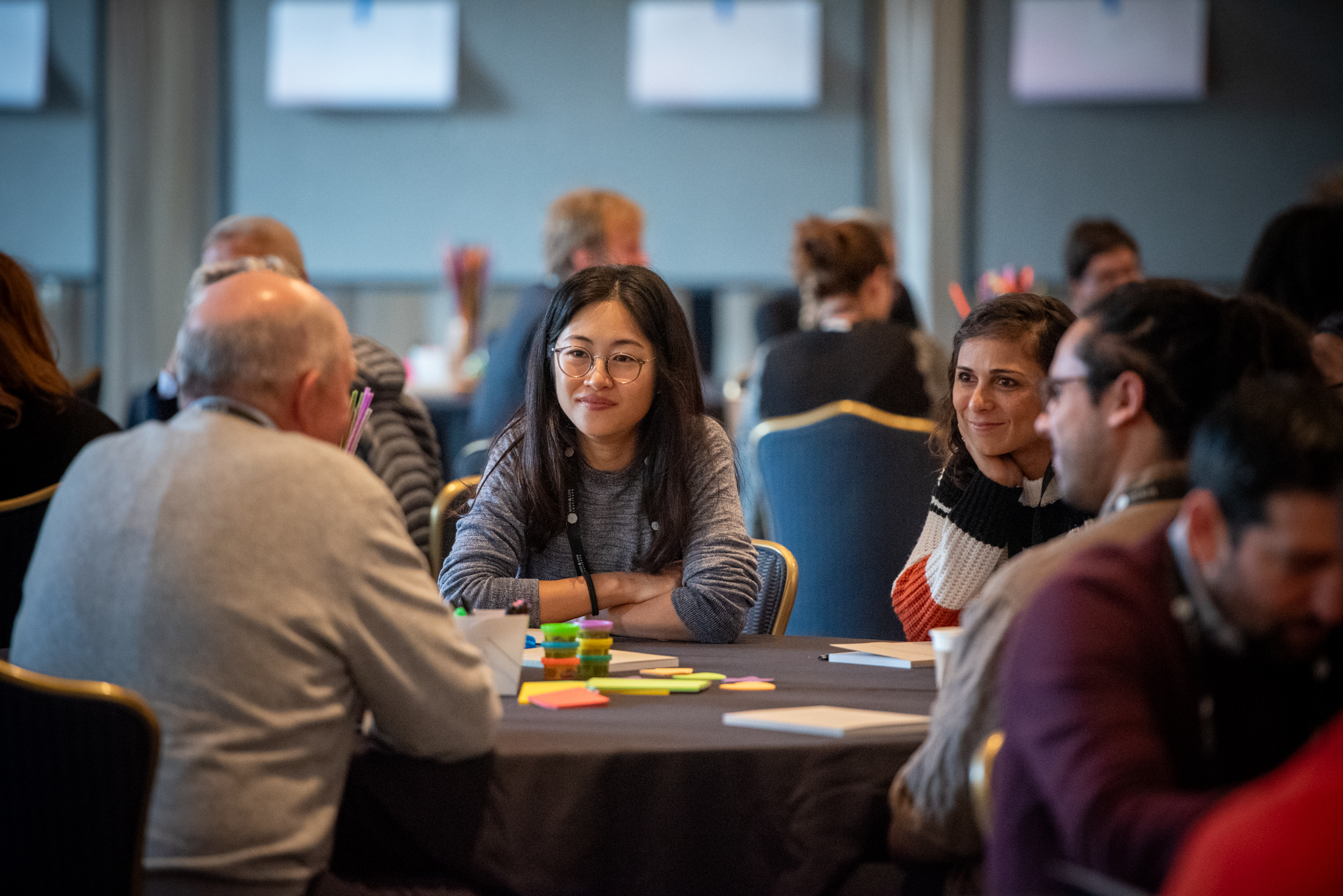
Upon arrival at Mind & Life’s “Envisioning the Future of Contemplative Research” conference on October 28-31, I was filled with a sense of not knowing, part nervous anticipation and part excitement. Not knowing the contour of the phenomenological experiences due to the boundless and ephemeral nature of our encounter. Not knowing the climate of the relational landscape for the diversity of participants and the depth of our expertise. Not knowing where we would land in relation to the question that called the community to gather. The elders came. The guardians and stewards came. I was among a small group of emerging scholars who came. The community meeting was called to explore the future of contemplative research.
In a beautiful symmetry to the act of contemplation, the event bridged the essence of not knowing and clear seeing with an unwavering commitment to compassion. On the first day, the Chair of Mind & Life’s Board, Thupten Jinpa, urged us to actively explore how contemplative research could effectively catalyze positive system change. Embodying deep wisdom, Indigenous scholar Yuria Celidwen reminded us that systems change begins with inner transformation, which is deeply somatic and relational. Ed Taylor, a comparative education and leadership scholar, poetically brought in the imagery of a forest, reminding us of the dynamic ecology that sustainably breathes in the air of suffering and breathes out the oxygen of life.
In a beautiful symmetry to the act of contemplation,
the event bridged the essence of not knowing and clear seeing
with an unwavering commitment to compassion.
A new beginning awaited us at the doorstep of each moment. Sufi teacher Pir Zia Inayat Khan guided us through a poetic and contemplative journey that powerfully illustrated the timeless nature of a new day for it incubates infinite possibilities. To step into a moment while bearing the weight of infinite alternatives is a radical act. Contemplative social scientist Eve Ekman and neuroscientist Sará King inspired us to source strength from the intersection of our mind, body, and heart to make each step, leaving one footprint at a time. Over time, a trail is blazed.
Following such profound wisdom, we ventured off to engage with 15 questions on how contemplative research may further illuminate and facilitate the inner, relational, and systematic change that leads to a compassionate and socially just world. The questions explored topical edges in the field, among them technology/AI, subtle body/energy systems, the use of psychedelics, and our interconnection with nature. They looked at how we can expand the reach of contemplative research and scholarship, and next steps in developing the field itself.
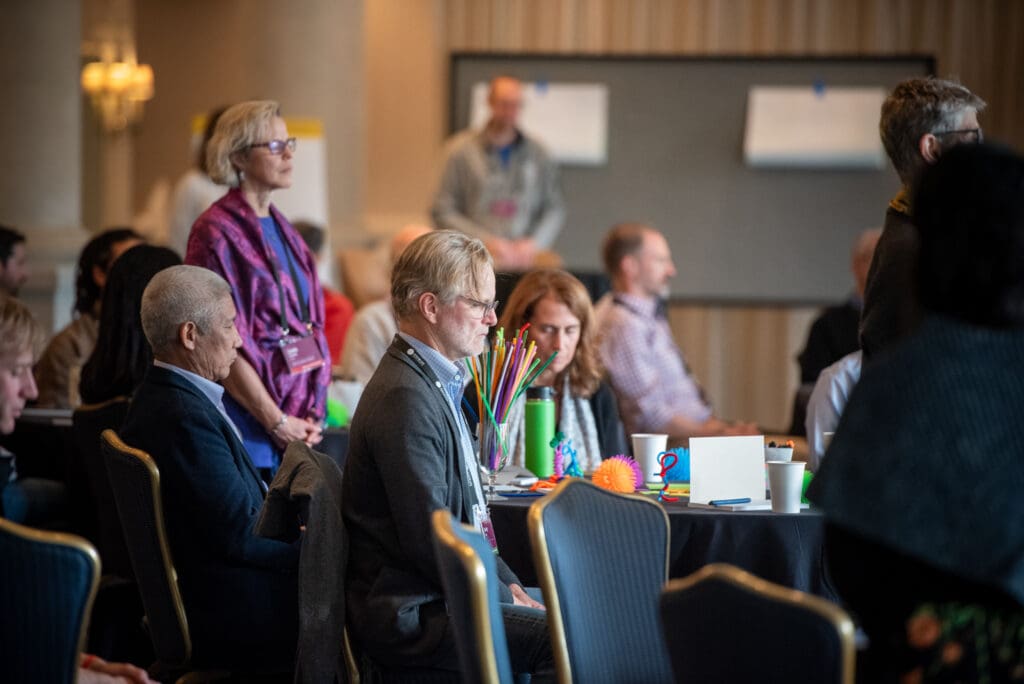
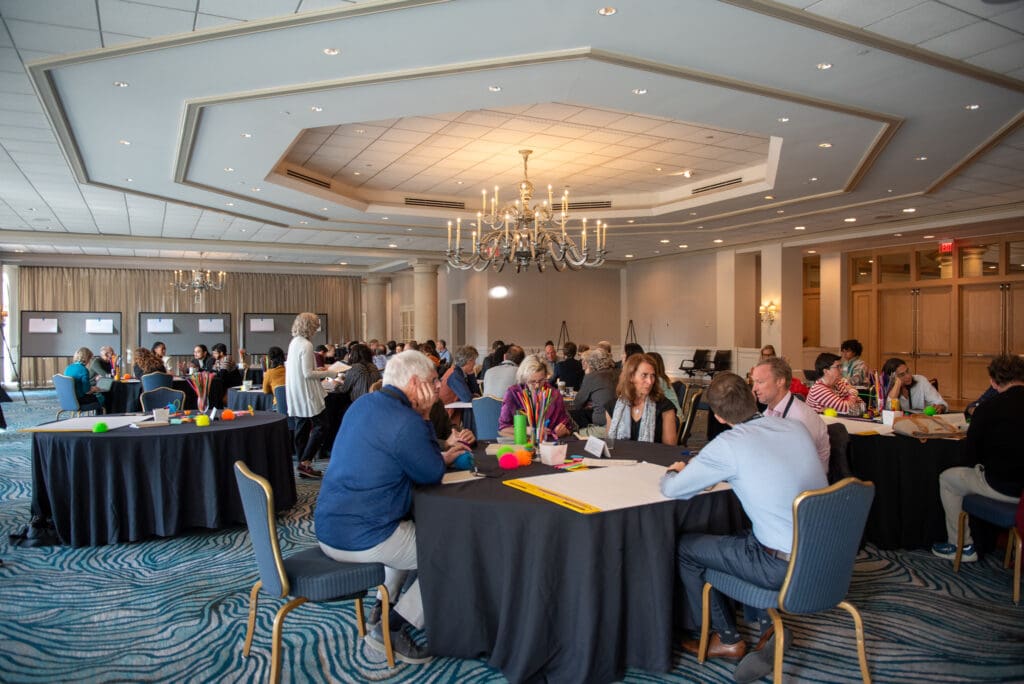
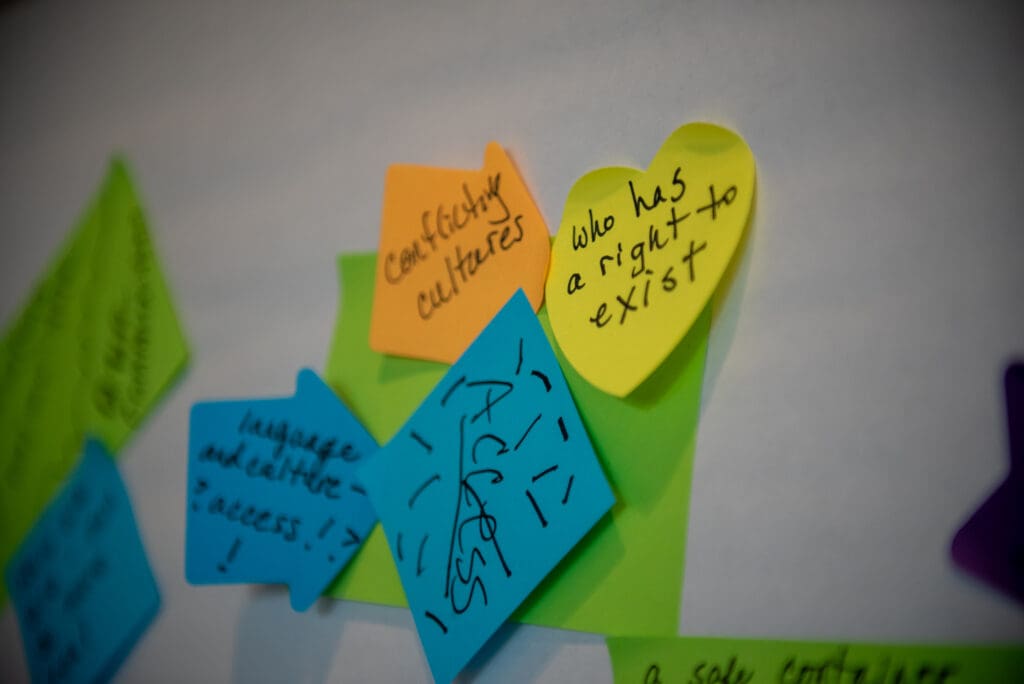
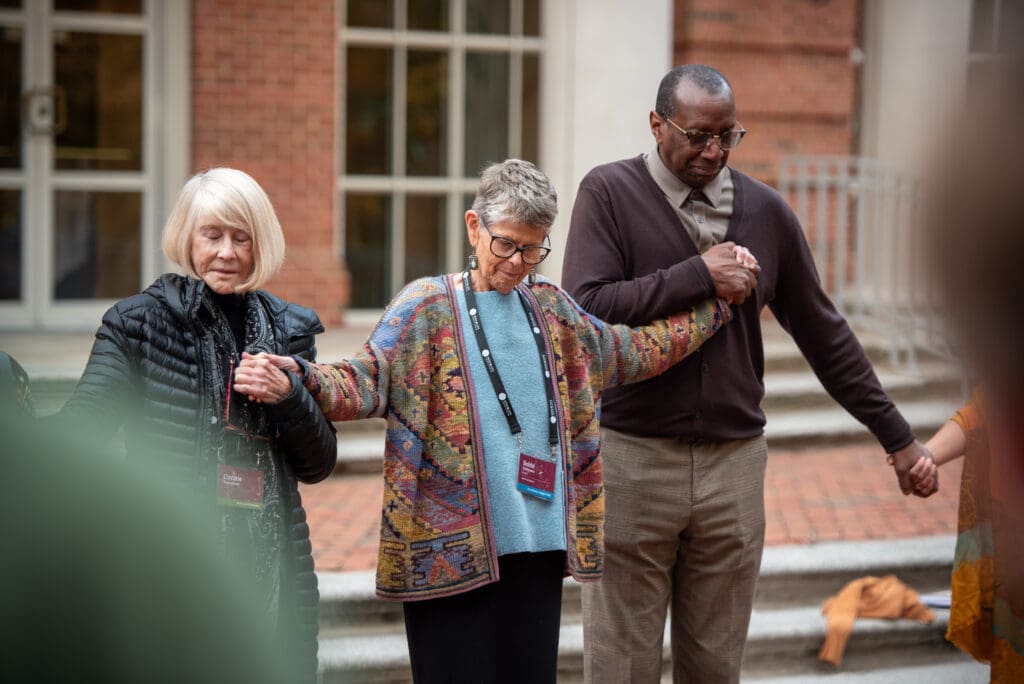
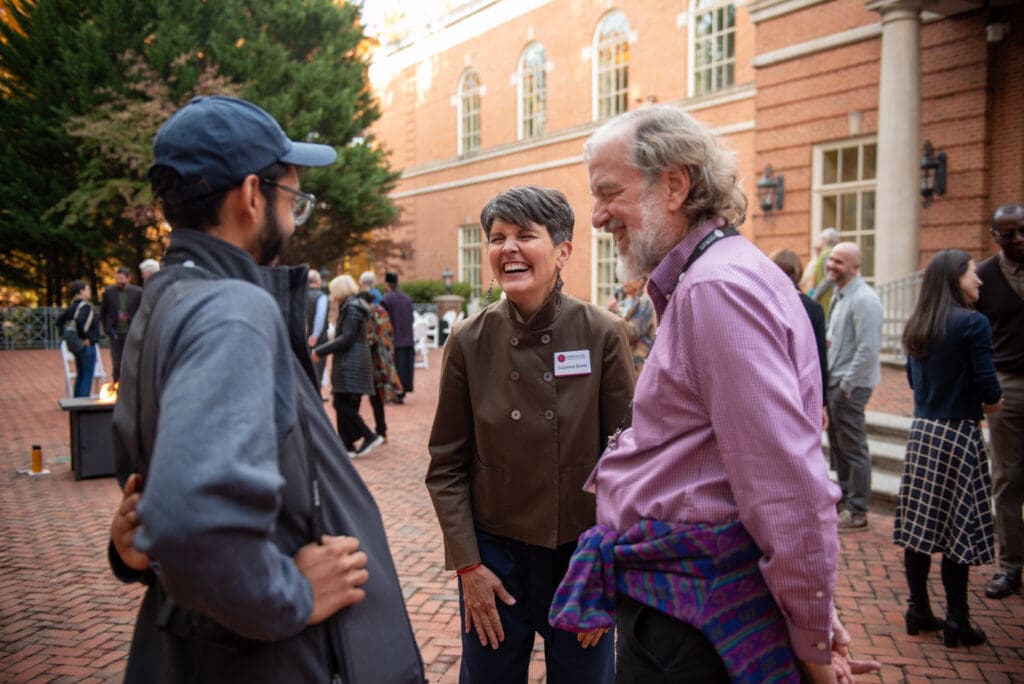

To cultivate clarity first calls for a courageous surrendering and awakening to the formless nature of all things. In awe of the mystery of not knowing, we can feel the palpable pulse within us to first be close with and connect to one another before embarking on the paradoxical journey to encapsulate the formless. Socially-engaged mindfulness teacher Rhonda Magee powerfully guided us through a practice of clear seeing that invited us to compassionately and meticulously attend to the rising and the falling of each moment. With each breath, we intimately encounter the cycle of life that embraces loss and welcomes birth. Here lies a profound koan: how might we arrive?
The primacy of ethics and actions of compassion emerged against the backdrop of extreme polarization in the world. A pioneer of contemplative research, Mind & Life Chief Scientific Advisor Richard Davidson urged us to take the position of an activist for compassion. The ethics of compassion demands us to not only bear witness to profound suffering, but to take action to alleviate suffering for all. No one left behind. One of the contemplative wisdom holders, Jon Kabat-Zinn, powerfully illustrated the interconnected nature of our human biophysiopsychologcial composition. It’s time to rise up from the meditation cushion with utter wakefulness, he urged, and enact radical compassion to restore our sense of interconnectedness in the current crisis of disconnection.
Where do the fields of contemplative research go from here?
How might we answer “the questions that have no right to go away?”
Imagery of a mother appears.
May we continue to skillfully nourish all sentient beings and be nourished by all wisdom traditions.
May we be grounded while holding the vastness of not knowing and metamorphic emergence of clear seeing.
May we continue to be a drop of water in each other’s company that conscientiously stewards the ethics of compassion and inspiring acts of love.
Again and again.
Yikai Xu is a PhD student in clinical and counseling psychology at Culture Emotion, and Health Lab at New York University and a member of Mind & Life’s Young Adult Advisory Council.


